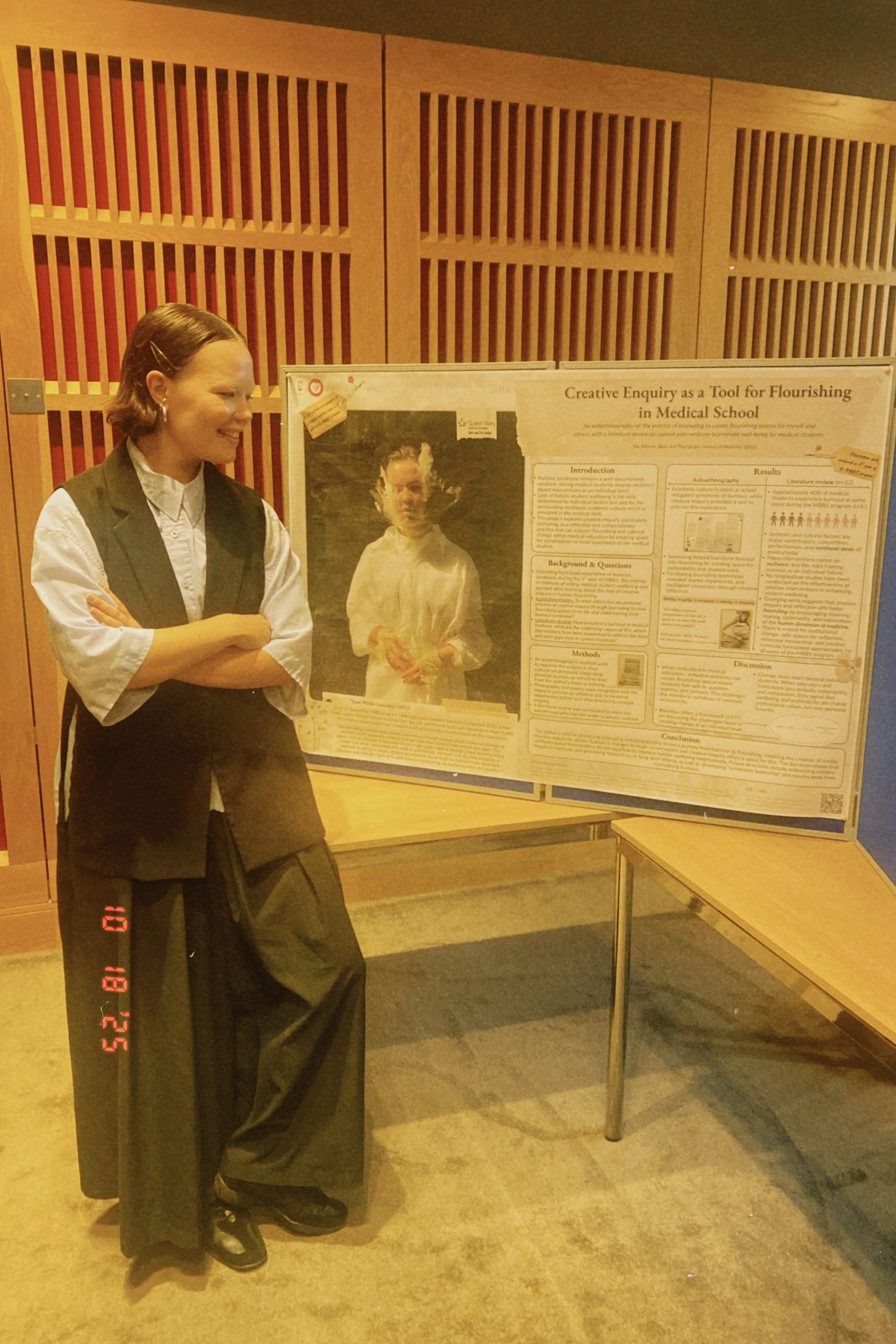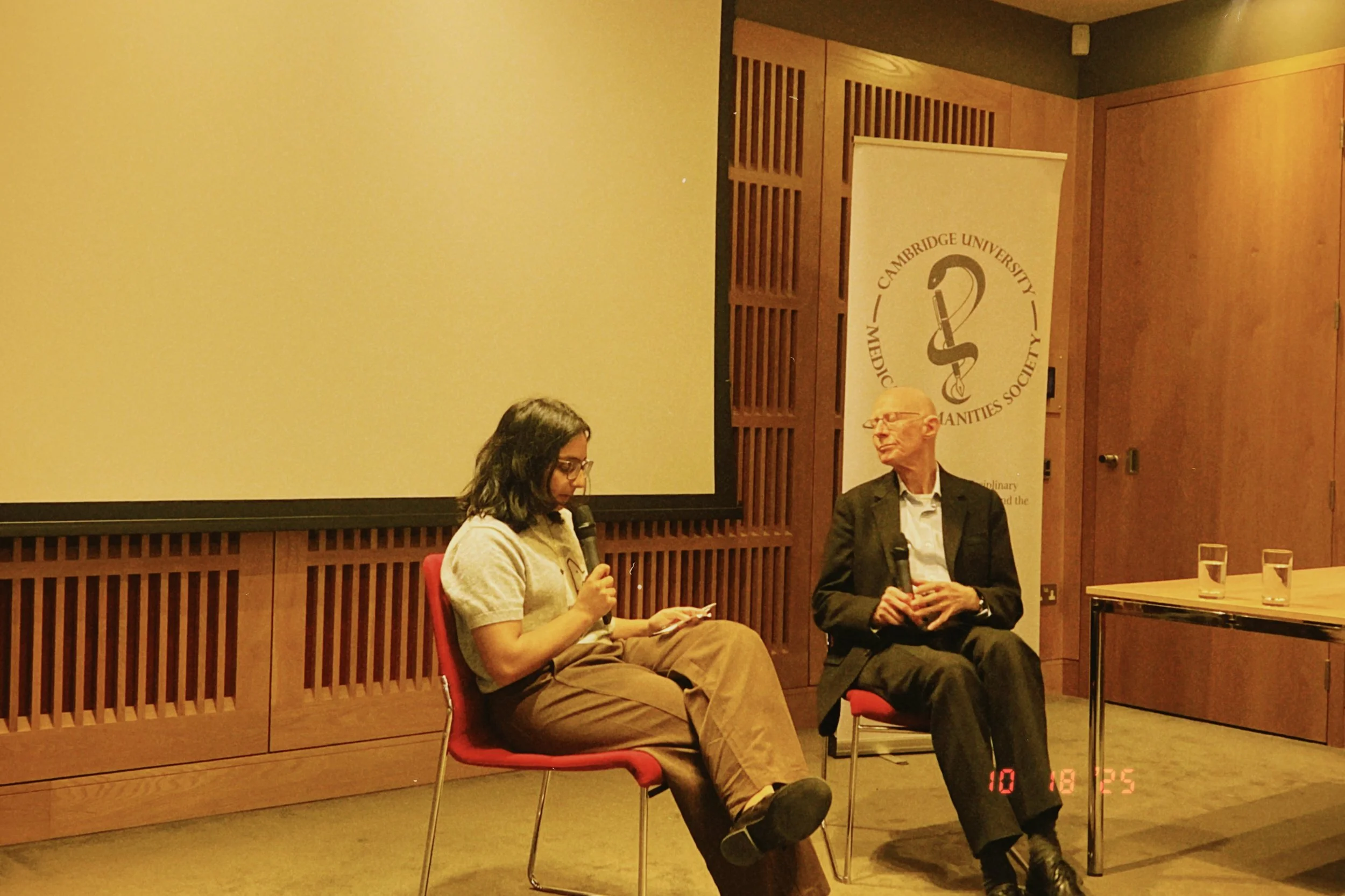Medical Humanities Conference in Cambridge
Final-year medical student Elle Tallgren from Barts and The London (QMUL) presented her dissertation work on creative enquiry and flourishing at the recent Medical Humanities Conference in Cambridge, co-hosted by the Cambridge University Medical Humanities Society (CUMHS) and the Association for Medical Humanities (AMH).
Elle shared:
“It was a delight to be invited to present my dissertation work as a poster at the Medical Humanities conference in Cambridge. The CUMHS and AMH did a beautiful job organising this day, full of talks on what it means to be in the field in this current day of advances in technology and AI.”
The conference offered a vibrant programme of talks and discussions exploring what it means to be human within rapidly changing healthcare landscapes- a fitting space for conversations about creative enquiry, flourishing, and the arts in medicine.
You can find the details on the event from Association for Medical Humanities website here.
It was my first time presenting independently at a conference, and it was a privilege to get to highlight the findings from my dissertation done during the 4th year of medical school. My abstract for the poster is as follows:
Burnout is increasingly recognised as an epidemic within medical education, posing significant risks to the future medical workforce and the quality of patient care. This dissertation explores the persistence of burnout despite numerous resilience-based interventions, arguing that such approaches, while well-intentioned, often overlook the cultural and systemic conditions that give rise to the problem. Through a critical literature review and an autoethnographic methodology, this dissertation examines how the culture of medical training, shaped by neoliberal values of individual responsibility, emotional restraint, and hyper-productivity, perpetuates burnout and limits opportunities for genuine wellbeing. Emerging from the author’s lived experience, creative enquiry is introduced as a personal and pedagogical tool with the potential to foster flourishing and subsequently mitigate burnout. Positioned within a broader theoretical framework of cultural change, creative enquiry is examined for its reflective and connective capacities and ability to catalyse conversations that challenge dominant norms of medical culture. Particular emphasis is placed on journaling as an accessible entry point into creative enquiry, enabling reflection, emotional awareness, and critical engagement with the hidden curricula of medical education. This dissertation argues that addressing burnout requires more than building individual resilience; it demands a cultural reorientation that values vulnerability and dialogue, and supports the flourishing of its students to maintain safe and sustainable medical practice.
Here is a photo of Aatqa Arham (Medical Humanities Society Co-president) and keynote speaker Professor Roger Kneebone discussing questions from his talk on “Performing Medicine: Insights from outside healthcare”.
As part of my poster, I presented a piece of creative enquiry.
A quote from my reflection on the self-portrait “Comfort in Liminality” (2022):
“Between being a student and a doctor, one must go through medical school, 6 years on average of personal growth to become a human that can hold other humans’ lives on their shoulders. This space is liminal, although it feels long. I’ve yet to get comfortable at medical school, knowing where I need to be when I get handed that scroll of achievement. My heart is in the clinical aspects of medicine, in talking to people, offering my presence, but at times the journey to get there feels laborious and I feel like I have to be determined in maintaining my humanity within this practice. “



